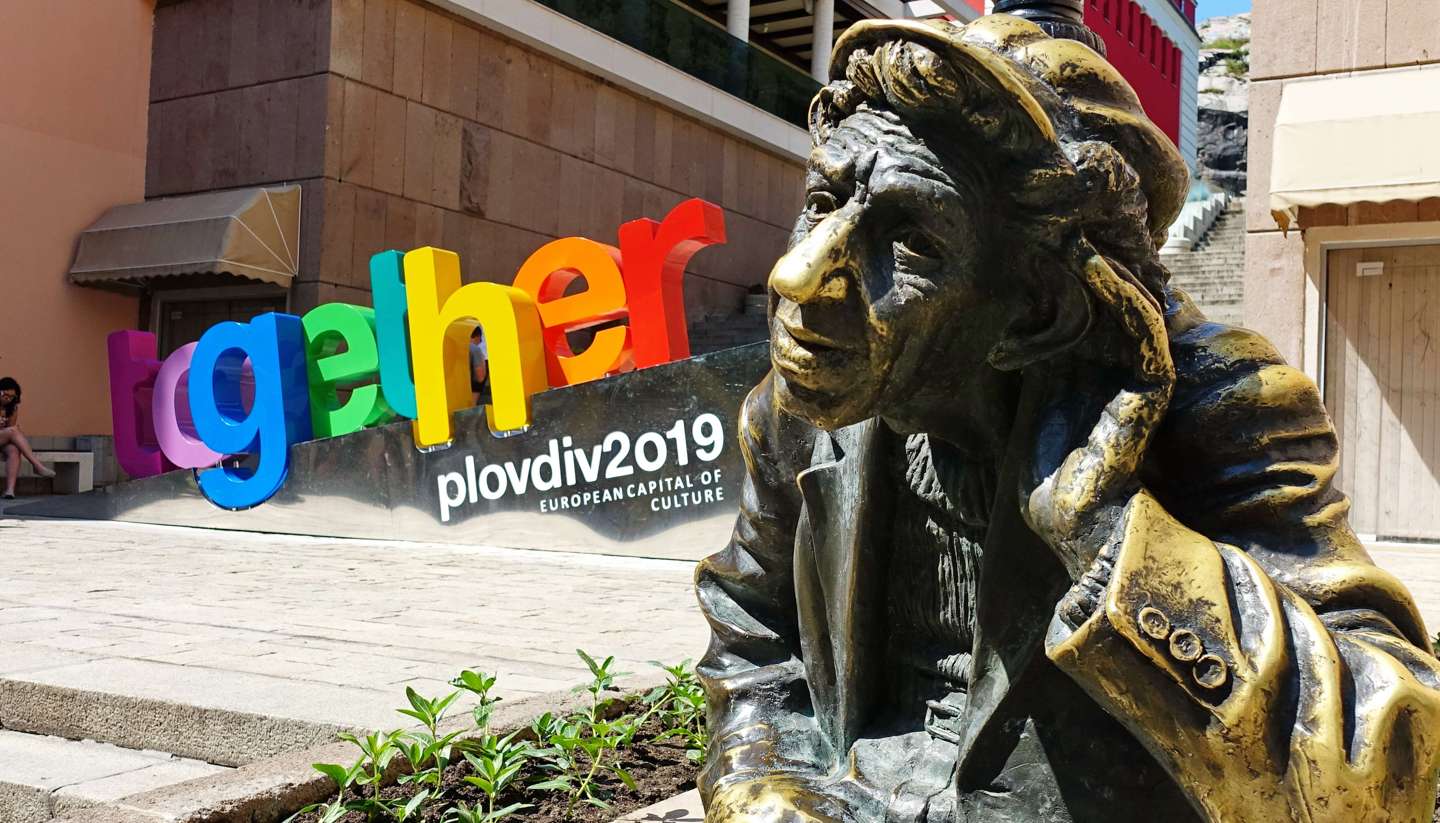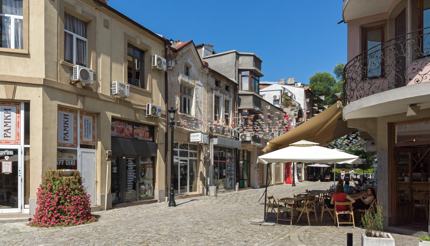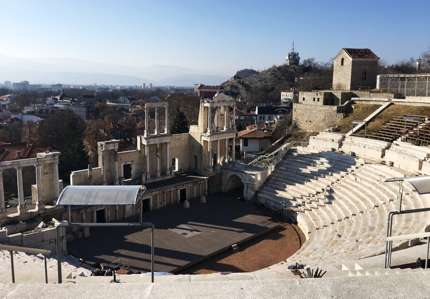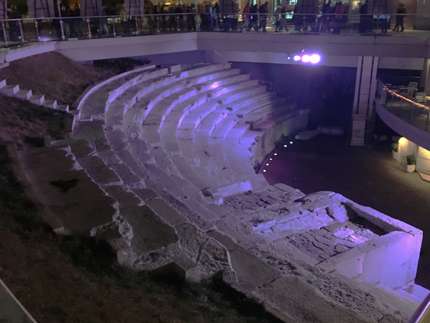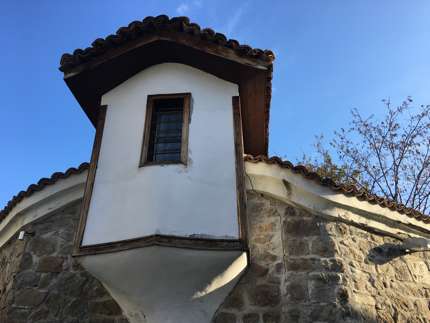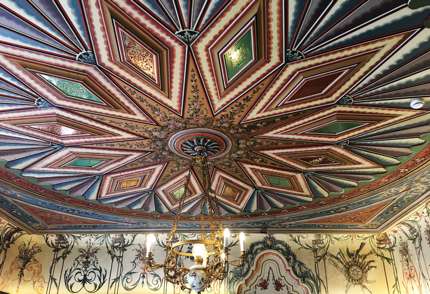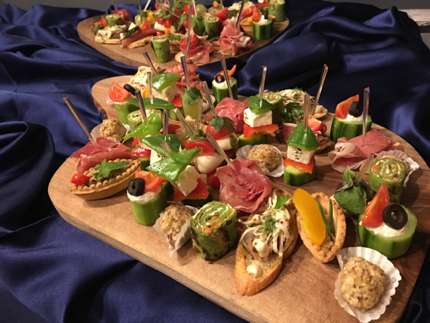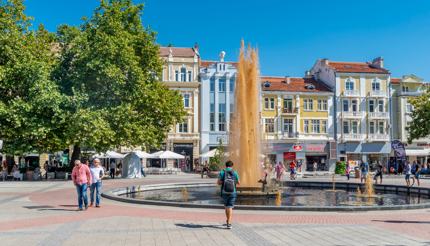Plovdiv takes centre stage this year as European Capital of Culture, offering a plethora of artistic activities and enlivening entertainment
Plovdiv, Bulgaria’s second largest city, kicks off its tenure as this year’s European Capital of Culture with the ‘We Are All Colours’ show, giving the world a glimpse of upcoming events for the rest of 2019.
Best events in 2019
- January 12: Opening ceremony ‘We Are All Colours’ is a dazzling combination of live performances and colourful imagery.
- January 12 to March 30: ‘Smoke. Tobacco Stories’ is an exhibition which tells the intricate link between Plovdiv and the tobacco industry from the Ottoman days to the first half of the 20th century.
- April 04 to June 30: ‘Listen To Us: Artistic Intelligence’ shows off Deutsche Telekom’s precious collection of contemporary arts from Eastern and South-eastern Europe, which in itself aims to promote Europe’s cultural diversity through arts.
- May 04: Ayliak Parade turns Plovdiv’s main pedestrian streets into a cultural extravaganza with over 300 people donning elaborate costumes making their way around the city.
- May (exact dates to be announced): ‘Brexit Blues’ features Bulgarian and English musicians tackling a wide range of genres including rock ‘n roll, progressive rock, punk, jazz and blues.
- May (exact dates to be announced): ‘Cyrillization’ promotes the Bulgarian form of Cyrillic fonts, as Plovdiv is the first European Capital of Culture that uses the Cyrillic alphabet.
- June (exact dates to be announced): ‘Children City’ revolves around the concept of ‘junkitecture’ where children will build their own town using natural and recycled materials at the top of the city’s highest hill, the aptly named Youth Hill.
- June 01 to 10: ‘Plovdiv Karavana’, presented by the International Center for Traveling Theaters, sees over 200 artists find their way to Plovdiv by foot, bicycles, horses or caravans to share their art with Plovdivians and visitors.
- June 13 to 16: ‘Street Masters’ showcases urban culture and street art, plus open-air performances and concerts.
- June 14 to July 31: ‘Opera Open’ promises 11 delightful musical evenings at the Ancient Theatre. Among them, Madame Butterfly, Giselle and Otello will debut in Plovdiv.
- July 01-31: ‘Summer Cinema in the Park’ turns city parks into outdoor cinema halls.
- July 19 to 21: ‘Hills of Rock’ is a must-see event as renown local and international rock musicians congregate in Plovdiv. This year, English hard-rock band Whitesnake, heavy-metal band Disturbed, alternative rock band Garbage, and Swedish groups Amaranthe and Royal Republic are headlining.
- August 03 to 04: ‘Summer by the River’ takes advantages of the warm weather to host a big city picnic, a parade and a spectacular evening show.
- September 13 to 15: ‘Night/Plovdiv’ unites the city through arts with clubs, artists’ studios and public spaces coming together to host varied programs.
- September 26 to 29: ‘Love Swing Dance Festival’ brings the endearing ‘swing era’ of 1920s-40s to Plovdiv with dancers performing to the swing style of jazz music.
- September (exact dates to be announced): ‘Mood for Food’ feeds your stomach and soul, as it combines the best of Bulgarian cuisine with music and favourite artists.
- November (exact dates to be announced): ‘Plovdiv Jazz Fest’ promises to thrill the audience with powerful performances from both Bulgarian and international jazz artists.
Navigating Plovdiv
Located 145km (90 miles) southeast of Sofia, Plovdiv is a compact city divided into north and south by the Maritsa River. The UNESCO-listed Old Town is dotted with ancient monuments, historic houses and museums. Next to the Old Town is Kapana (literally means ‘The Trap’), a district where craftsmen first settled 500 years ago. Today, it’s hip, vibrant and buzzing, with an evolving cluster of bars and galleries giving the area a creative flair.
Given that all major monuments and attractions are near to one another, Plovdiv is best explored on foot. If walking doesn’t take your fancy, taxis are inexpensive and provides an excellent alternative. For example, a 2km (1 mile) trip from the heart of Old Town to Holiday Inn Plovdiv on the north bank will cost you around 4 Bulgarian lev (€2 or £1.80).
Must-see attractions in Plovdiv
- The Ancient Theatre is an outstanding monument with rows of marble seats and the millennia-old main stage still largely intact, giving modern visitors a chance to experience a theatre built with amazing acoustics in the late first century.
- The Roman Stadium, approximately 240m (797ft) long and 50m (164ft) wide, could accommodate 30,000 spectators in the old days. It now lies below the main shopping street Knyaz Alexander 1 and visitors can still see a semi-circular part of the spectator seats.
- The Archaeological Complex Nebet Tepe shows you where Plovdiv was founded some 8,000 years ago. Today, the ruins consist of scattered stones but the site offers great views of Plovdiv and surrounding hills.
- Museum Houses are lovingly restored historical houses in the Old Town, giving you a peek into how rich merchants once lived. Two intriguing facts for visitors are: every ceiling in each house is unique, and the houses tend to have a ‘gossip room’ which overlooks the main entrance. In the old days, when a visitor knocked on the door, the owner would go to the gossip room and check out who was calling. Worthy diversions include the Klianti House, Balabanov House and Hindliyan House.
- The Regional Archaeological Museum holds a treasure trove of priceless artefacts including 60,000 ancient coins, pottery dating from the Neolithic Age, and beautiful jewellery and amulets.
Food & drink tips
You can’t go hungry in Plovdiv, as the city boasts many restaurants and cafes serving hearty Bulgarian and international dishes. Things to try include:
- Banitsa – often eaten with yogurt at breakfast, Banitsa is baked pastry filled with a mixture of eggs and pieces of cheese.
- Tarator – cold soup of cucumber, garlic, yogurt and dill, served during summer months.
- Sarma – stuffed vine leaves or cabbage filled with rice and minced meat.
- Kyufte – grilled or fried meatballs.
- Bulgarian cheese – Sirene (Bulgarian Feta), Kashkaval (Yellow Cheese) and Cherni Vit (Green Cheese) are ever popular.
Excellent restaurants include Smokini just south of Dzhumaya Park (their sarmas are incredibly delicious) and Vivaldi, a charming Italian restaurant serving mouth-watering dishes.
Bulgarian wine is getting much attention nowadays as boutique wineries are springing up across the viticultural landscape, combining history, culture and immense passion behind each label. Among them, the award-winning Villa Yustina is only 35 minutes away by car from Plovdiv.
Weather in Plovdiv
Spring (March to May) starts off cold but warms up considerably as the months progress. May is a great time to visit Plovdiv, just before the summer season begins and the weather is pleasant with temperatures averaging 17°C (63°F), but do bring a raincoat.
Summer (June to August) promises plenty of sunshine with temperatures averaging 33°C (91°F) in July and August.
Autumn (September to November) is a fantastic season to visit Plovdiv as it is relatively warm and dry. In October, the average low is 7°C (45°F) while the average high is 19°C (66°F). By November, temperatures drop significantly so layer up if you’re visiting.
Winter (December to February) is cold and snowy, with January being the coldest month.
Travelling to Plovdiv
There are several ways to get to Plovdiv:
- Take a direct bus from Central Bus Station in Sofia to Plovdiv – multiple bus companies provide this service and the cost is around 14 Bulgarian lev each way and the journey takes about two hours with the last stop at Bus Station South (Yug) in Plovdiv. For more information, see centralnaavtogara.bg.
- Take the Sofia-Svilengrad and Sofia-Burgas lines from Central Railway Station Sofia. The journey takes about 2 hours 30 minutes. For more information, see this page.
- You can also take a direct flight from London to Plovdiv with Ryanair. Search for your flights on this Skyscanner page.
Other travel tips
- The currency in Bulgaria is lev. There are several money exchange shops in Plovdiv if you would like to convert pounds or euros in lev.
- The main language is Bulgarian but many people speak excellent English.
- Every street has a sign in Bulgarian and in English explaining the street name, highly useful for cultural buffs.
- Food and drinks are reasonably priced. A sandwich with a bottle of water cost 8 lev (£3.60 or €4) from a café while a steak dinner and a glass of wine are likely to set you back 40 lev (£18 or €20) in a fancy restaurant.
- Plovdiv is safe but just like other cities, it is best to take basic safety precautions.
Before you go, check out:
